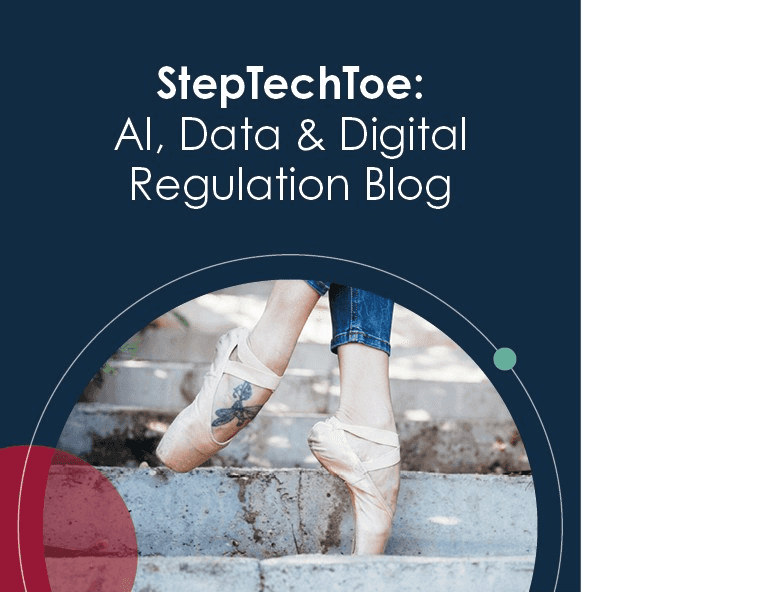Overview
Below is this week’s tracker of the latest legal and regulatory developments in the United States and in the EU. Sign up here to ensure you do not miss an update
AI General Update:
- IBM and Meta have announced the formation of the “AI Alliance,” a group which includes 50 founding members including AMD, Hugging Face, Intel, Linux Foundation, NASA, Oracle, Sony, Stability AI, and others. According to the launch press release, “The AI Alliance is focused on fostering an open community and enabling developers and researchers to accelerate responsible innovation in AI while ensuring scientific rigor, trust, safety, security, diversity and economic competitiveness.”
- Microsoft’s 365 Copilot is now out of beta and is generally available for customers worldwide.
- Google has launched version 1.0 of its Gemini AI model. The “Ultra” version of the model can apparently outperform ChatGPT-4 on certain tasks, but is not yet publicly available. Google’s Bard will use the “Pro” version of the model, with ultra arriving next year.
- According to an accompanying technical paper, Gemini’s “pretraining data set uses data from web documents, books, and code, and includes image, audio, and video data.” The paper also states: “We find that data quality is critical to a highly performing model, and believe that many interesting questions remain around finding the optimal data set distribution for pretraining.”
AI Litigation Update:
- The plaintiffs in Andersen v. Stability AI (ND. Cal, No. 3:23-cv-00201) have filed an amended complaint after the court had previously granted the motion dismiss with leave to amend. The amended complaint adds additional factual allegations including:
- “Defendants hold out their AI image products as being able to create substantially similar substitutes for the very works they were trained on—either specific training images, or images that imitate the trade dress of particular artists—including Plaintiffs. This is already damaging the market for Plaintiffs’ artwork and labor, and the art market more broadly. Midjourney, for instance, has repeatedly promoted the use of artist names—including Plaintiffs’ names—within text prompts as a means of getting better results.”
- “LAION’s most well-known projects are the datasets of training images it has released for training machine-learning models, which are now widely used in the AI industry . . . The actual images referenced in the LAION-400M dataset records are not included with the dataset. Anyone who wishes to use LAION-400M for training their own machine-learning model must first acquire copies of the actual images from their URLs. To facilitate the copying of these images, LAION provides a software tool called `img2dataset`6 that takes the metadata records as input and makes copies of the referenced images from the URLs in each metadata record, thereby creating local copies.”
- “AI image products are only getting better and better at storing copies of training images and can even produce images indistinguishable from those created by a specific artist in the training dataset . . . diffusion models—and Stable Diffusion in particular— have the ability to store copies of protected expression from training images and later regenerate it.”
- “Plaintiffs have found at least one instance where a defendant (Stability) has apparently adjusted the behavior of its AI image product to make prompting with Plaintiffs’ names more difficult, possibly in response to filing the initial complaint in this action. At this juncture, it is impossible for Plaintiffs to know the full scope of measures that Defendants may have adopted in their AI image products to frustrate Plaintiffs’ investigation of the claims in this complaint.”
AI Policy Update—Federal
- Several organizations, including Public Knowledge and the Open Markets Institute, wrote a letter to the White House warning of “monopolistic behavior in the AI sector.”
AI Policy Update—European Union:
- The EU AI Act is still being negotiated. According to a document circulated among lawmakers, seen by Reuters, the European Commission would maintain a list of AI models deemed to pose a "systemic risk", while providers of general-purpose AIs would have to publish detailed summaries of the content used to train them. The law may also exempt free and open-source AI licenses from regulation in most cases, unless they were deemed high-risk or being used for already banned purposes.
- AI experts sent an open letter to French President Emmanuel Macron, Italian Prime Minister Georgia Meloni, and German Chancellor Olaf Scholz as a response to the proposal of these countries for self-regulation of foundation models. The letter emphasizes that “companies should not make the rules themselves” and that delaying the regulation “comes at significant costs,” urging France, Italy and Germany to change their position on the regulation of foundation models.
AI Policy Update—International
- Taking a different approach than the U.S. copyright office so far, Beijing’s Internet Court ruled that an AI-generated was protected by copyright laws. The court said that the image, generated by StabilityAI’s Stable Diffusion model, should be protected by China’s copyright laws based on the “originality” and intellectual input of its human creator. The ruling can be appealed.



